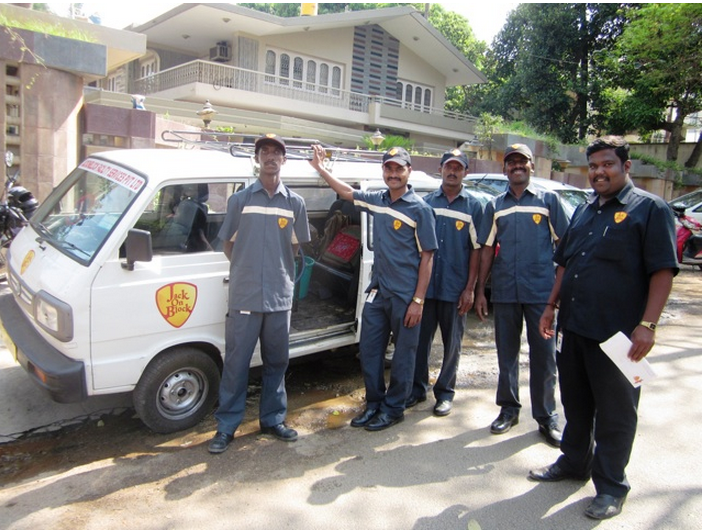India’s huge demand for skilled workers is creating compelling opportunities to invest in ventures with innovative ways to turn low-income and marginalized people into ready workers. That’s the thesis of Unitus Seed Fund, an investor in early-stage ventures aimed at India’s “base of the pyramid” that has closed two such deals in recent weeks. Unitus is stepping up its deal-making after raising $8 million, including from Silicon Valley billionaire Vinod Khosla (see “Seeding Startups at the Base of India’s Pyramid“). Jack on Block, based in Bangalore, hires laborers out of India’s vast informal economy and trains them to fill urban India’s extreme shortage of plumbers, electricians, housekeepers and other handymen and women.
The facilities management firm hires unskilled or semi-skilled workers, puts them through both technical and “soft skills” training and provides reliable crews to apartment owners, office buildings and other such facilities. Most of the workers are getting access to retirement benefits, healthcare and health and life insurance for the first time. Since it began last year, Jack On Block has grown to service more than 2,000 customers in Bangalore with more than 90 employees.
The investment from Unitus, which was joined by angel investors from Mumbai Angels and Bangalore Angels, is aimed at helping Jack on Block grow in the next four years to provide employment to more 2,000 low-income workers. Unitus’ other recent investment, in iSTAR, also in Bangalore, seeks to address the millions of open jobs for which Indian companies can’t find qualified candidates by providing follow-on job training for graduates of India’s non-elite colleges. Unitus cites reports that 75 percent of engineering majors, 85 percent of finance majors and more than 90 percent of other graduates are not employable.
Rather than forcing graduates to search on their own for training in English language, project management, productivity software, sales and other skills, iSTAR says its affordable curriculum is tailored directly to the requirement of hiring companies. In the next five years, iSTAR says it expects to train more than 140,000 Indian students, “the vast majority” from low income families.
Unitus didn’t disclose the size of the investments or other terms of the deals; we’ll update with details as we get them.











